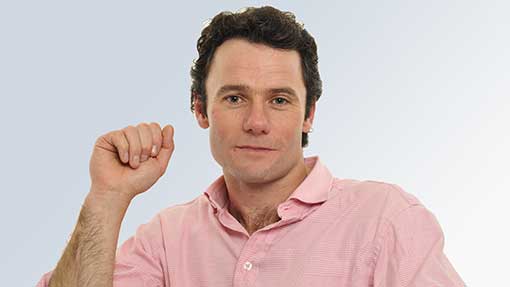Opinion: Flea beetle damage highlights flawed system

Several thousand acres of recently planted oilseed rape have been ploughed up this autumn. No longer protected by the now-banned seed treatment Cruiser, it is succumbing to the ravages of the flea beetle.
The long-term viability of oilseed rape in the UK will be called into question by many growers. But the depth of the issue goes far beyond the moratorium on the use of neonicotinoids. The way the European Commission came by its decision affects every farmer in the UK and beyond.
When the ban was announced in the autumn of last year, many oilseed rape growers across the UK would have thrown their hands up in disbelief. Not just because they were losing thiamethoxam, the active ingredient that keeps flea beetle in check while tender rape plants are emerging from the ground, but also because they knew if neonics were unavailable, less environmentally sensitive and less precise pyrethroids would be applied in those early weeks of plant emergence in an effort to keep flea beetle at bay. The decision to ban neonics appeared very shortsighted.
Compounding farmers’ disbelief is the knowledge that the commission’s ban isn’t supported by Defra. To use Defra’s words: “The UK, along with a number of other member states, opposed the restrictions because the evidence suggests effects on bees do not normally occur.”
“We need informed consumers who can challenge opinions”
Ian Pigott
Why wasn’t Defra’s stance upheld by the prime minister? It appears David Cameron did not have the appetite to oppose a ruling from Brussels. In doing nothing, Number 10 made it very clear that this issue was about votes, not science. How disappointing that the perfect opportunity to stand up to Brussels was declined.
The non-governmental organisations whose agendas challenge commercial farming must be rubbing their hands together. On the one hand, a UK government shy of defending, when appropriate, sensitive food and farming issues where emotional opinion is pitched against scientific data; and on the other, populist votes elsewhere in Europe defining farming rules. Notwithstanding a UK media that is more than happy to exploit these stories without accountability. We are in danger of returning to an era where the farmer is guilty until proven innocent.
So what are we to do? As farmers, we have to be responsible for our own evidence. Not by providing anecdotal pub talk, but hard data. Campaigns such as the one being mounted by the NFU to collate images and figures of the damage and acres lost to flea beetle must be supported.
Furthermore, we have to influence these decisions in the longer term. To do this, we need to continue to educate our younger audiences about farming, but the reach of these resources needs widening, especially as schoolchildren enter key stage 4 and 5 (14- to 18-year-olds), when they form opinions and challenge critical thinking.
We need to use the changes in the curriculum to better inform teachers and develop their knowledge and understanding of the use of science in our industry. At the very least, everyone within agriculture should understand and support the arming of our schoolchildren with a balanced, considered, proportionate and evidence-based knowledge about food and farming. We need informed consumers who can challenge opinions.
Investment in education is safeguarding farming’s long-term future. Debates of science versus emotion, such as those surrounding neonics and bovine TB, will not be won with campaigns and lobbying alone.
Ian Pigott farms 700ha in Hertfordshire. The farm is a Leaf demonstration unit. Ian is also the founder of Open Farm Sunday
